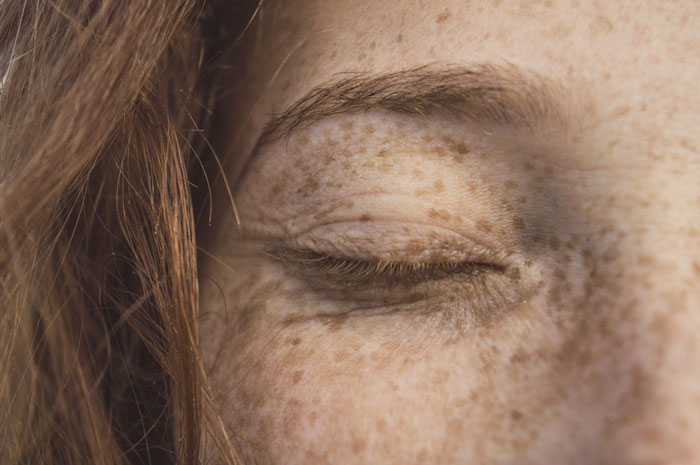How do you know if your skin is really dry and sensitive, and how to choose the right care for your sensitive skin?
Should you call your skin sensitive?
There is a general definition of sensitive skin – it is hyper-reactive skin, characterized by overreaction in response to stimulating factors.
To put it simply, the phrase “sensitive skin” means that the epidermal barrier is damaged, and, as a result, it reacts more sharply than ever to all external or internal stimuli such as cold, wind, new beauty products, medication, or even just fatty foods.
That is, if the skin of the face reacts to the so-called above-mentioned irritants with redness, peeling, itching and the like, your skin is really hypersensitive and you do not suffer from hypochondria.
In addition, there is no doubt that your skin is sensitive (and therefore requires special care) if you suffer from allergies.
Can sensitive skin be “cured”?
Sensitive skin is not a specific type, but a specific condition of the facial skin. Hypersensitivity can be observed in any skin type. Oily skin can also be sensitive, especially if a person is undergoing acne treatment, for example. Therefore, in order for the skin to become normal, in addition to external care, it is necessary to act from the inside.
Drink enough water, also try to have a balanced diet and do not neglect high-quality dietary supplements (in particular, with collagen and hyaluronic acid).
Contrary to stereotypes, girls with an oily skin type, rather than with dry skin, are more likely to suffer from increased sensitivity of the facial skin.
In addition, it is important to understand that skin sensitivity can be congenital (this can manifest itself both from birth and already in adulthood, for example, due to the negative environmental influences or after childbirth).
Skin lesions can also appear as a result of aesthetic treatments. If carried out regularly, this will increase the threshold of skin sensitivity, and in the future, it will take less time and effort to restore the stratum corneum and lipid mantle.
Vegans and vegetarians often suffer from hypersensitive skin, as they do not consume much-needed animal fats, which reduces the protective functions of the skin.
Sensitive skincare features
An important step in taking care of sensitive skin is cleansing, as makeup residues and environmental pollution provoke inflammation and oxidative stress. In combination with ultraviolet radiation – rosacea, hyperpigmentation and photo damage. Removing this “incendiary mixture” from the skin and eliminating the effects of aggressive exposure without damaging the protective hydrolipid mantle is an important task of cleansing.
It is recommended to use micellar water or soft milk to cleanse sensitive skin. Instead of hard sponges, give preference to a konjac sponge.
To relieve tingling sensations during the day, use thermal water, fluids and/or gels to soothe the skin and restore a sense of comfort.
The main goal of the treatment is to protect, moisturize and reduce the sensitivity of the facial skin.
When choosing a cream for sensitive skin, first of all, you should pay attention to the composition, which should not include alcohol, phthalates, parabens and essential oils. In turn, it is desirable that hyaluronic and linoleic acids, panthenol, phytosphingosine and antioxidants be included in the composition.
Do not forget that hypersensitive skin needs additional protection at night, since a large number of free radicals accumulate during the day and by the evening the production of histamine increases, provoking itching and irritation of the skin. Look for products with antioxidants and soothing ingredients that will restore your skin’s comfort.
Moisturizing soothing gel for sensitive skin Phyto Corrective, SkinCeuticals. The product with hyaluronic acid and plant extracts soothes, softens, moisturizes irritated sensitive skin, and evens out the complexion. It is recommended after aesthetic treatments.
Sensitive skin care taboo
Since makeup is not always adapted for the owners of allergic skin, you need to use makeup products carefully. It is important to choose cosmetics for yourself together with a dermatologist or a consultant in a store, having previously tested it on the back of your hand, and, if there are no obvious reactions, only then apply it to your face. In dermatological brands, there are special makeup sets for girls with sensitive skin.
Avoid dense greasy textures and cosmetic oils. They create a film on the skin, due to which the skin begins to lack moisture.


